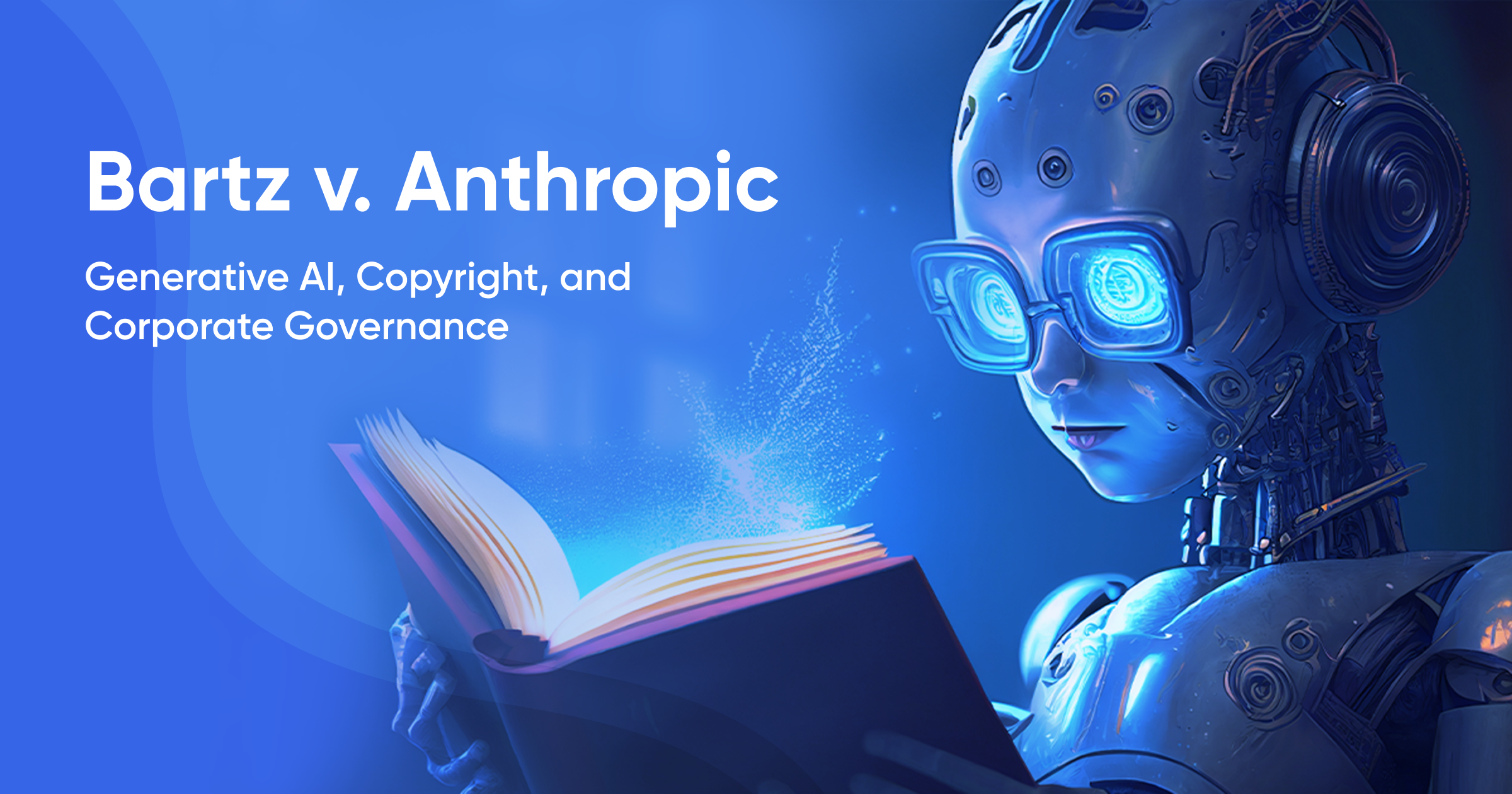A recent U.S. federal court ruling in Bartz v. Anthropic PBC is shaking up how companies think about AI, copyright, and governance. The case examined whether training AI models on copyrighted books constitutes fair use. The court said yes, but only in specific situations. It drew a sharp line between transformative use and unlawful data hoarding. This decision has serious implications for tech leaders, legal teams, and anyone using large language models (LLMs). It’s a wake-up call: how you train your AI matters. So does how you manage copyright risk.
Fair use vs. copyright infringement
The court said maybe, but only when the training is transformative. According to U.S. copyright law (17 U.S.C. §107), fair use depends on four factors. The court focused on the purpose and character of use. It is agreed that training an LLM like Claude is transformative because it changes the original work into something new.
But not all uses are equal. The court said storing a permanent digital library of pirated books is not protected. That, it ruled, crosses the line from innovation into infringement. This sets a new precedent for companies training AI models on third-party content.
Why this ruling matters for businesses
For companies investing in generative AI, this is a game-changer. The decision clarifies that data governance isn’t optional, it’s a legal and ethical must. Boards and executives need to ask:
- How was our model trained?
- Are we using licensed or public domain data?
- Are we creating a permanent repository of copyrighted works?
- What controls do we have in place to avoid copyright infringement?
The ruling shows that AI training can be a fair use, but building a warehouse of stolen content is not. Businesses must clearly separate lawful innovation from risky shortcuts.
Human authorship vs. machine creation
Another major issue is authorship. Under U.S. law, only humans can own copyrights. This raises new questions about AI-generated content:
- Does copyright protect AI output?
- Can it infringe on someone else’s work?
- What happens when AI mimics human writing or creative styles?
LLMs often remix copyrighted texts without exact copying. Still, even partial reproduction can create legal trouble. Courts are split, some say there's no substantial similarity, while others warn of infringement risks. That uncertainty makes compliance more important than ever.
What boards should do now
Boards and compliance leaders can no longer treat AI as someone else’s problem. The Bartz ruling offers clear takeaways:
- Assess Legal Risk: Understand the origin of your training data. Avoid pirated or scraped content.
- Implement AI Governance: Set internal guidelines for ethical AI use. Monitor how AI systems ingest and generate content.
- Review Disclosures: Public companies should evaluate whether AI-related copyright risks are properly disclosed in filings.
- Engage Investors: Audit committees and shareholders will demand transparency about how AI is developed and managed.
As LLMs become more advanced, the boundary between human creativity and machine output will keep blurring. This requires constant reevaluation of policies, datasets, and training practices.
What comes next: Law in transition
Bartz v. Anthropic is not the final word. It's a temporary framework for an evolving issue. Future courts may take different views. Congress could step in to redefine fair use for AI. Until then, businesses should treat the ruling as both a warning and a guide.
It tells us that details matter in training methods, data sources, and copyright controls. Ethical AI starts with transparent practices and legal clarity. Need help navigating AI compliance and copyright risks? Trademarkia’s legal experts can guide your business through fair use, licensing, and IP governance. Contact Trademarkia today to build AI the right way.

